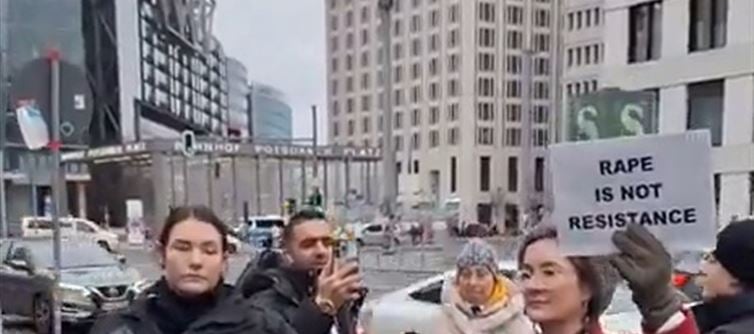
What this incident reveals is the growing influence of ideological absolutism within certain activist circles, where any criticism of groups perceived as “oppressed”—such as Palestinians or Hamas—is seen as a betrayal or provocation, regardless of the facts. Preisler’s sign didn’t call for violence, didn’t take a side in territorial disputes; it simply drew attention to the documented use of rape as a weapon of terror. Yet, for some, even this was too much—because it disrupted a carefully constructed narrative that frames all Palestinian actions as justifiable resistance, and any criticism as Zionist propaganda. This is where activism begins to mirror extremism: when empathy is granted selectively and atrocities are excused for the sake of political convenience.
Comparing certain elements of the pro-Palestinian movement to “modern-day Nazis” is a provocative and controversial assertion, but it stems from observable behaviors: violent rhetoric, the glorification of terror acts, and the demonization of Jews not just as Israelis, but as a people. These are hallmarks of fascist ideology. While the pro-Palestinian cause is vast and includes many peaceful voices advocating for human rights, the refusal by some factions to condemn acts like sexual violence, hostage-taking, and mass murder reflects a disturbing moral collapse. Preisler’s experience underscores the danger of any movement becoming so consumed by grievance and ideology that it loses sight of basic human decency.




 click and follow Indiaherald WhatsApp channel
click and follow Indiaherald WhatsApp channel